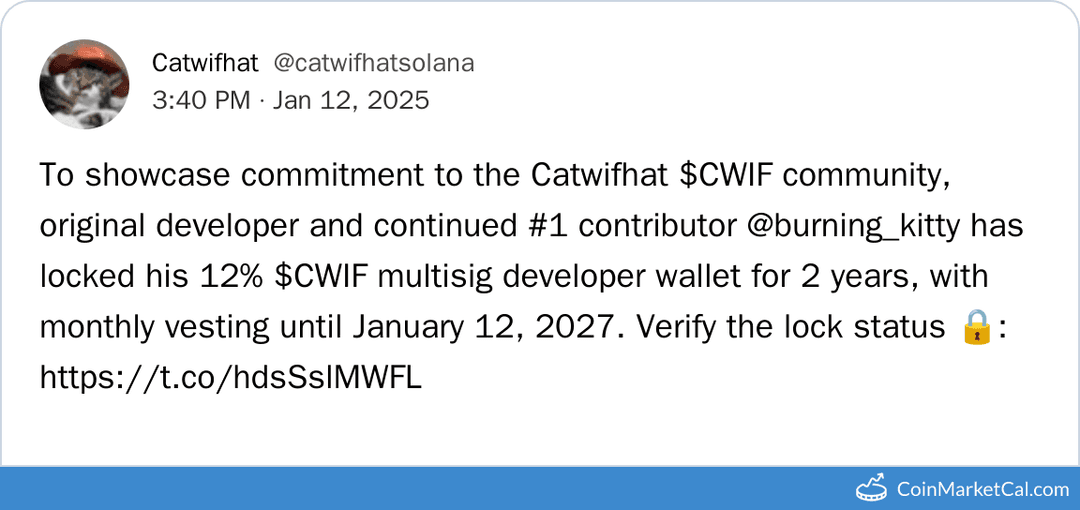CatWifHat Developer Wallet Lock
JAN
12
Event date
Tuesday 12 January 2027, UTC
Event description
On January 12, 2027, the developer and primary contributor of CatWifHat, known as @burning_kitty, locked his multisig developer wallet containing 12% of the $CWIF token supply for a duration of two years. This token lock is a security and confidence-building measure, ensuring the tokens will not be moved or sold during the lock period. The wallet lock event was publicly announced on the official CatWifHat X (formerly Twitter) channel.
Recent News
There are no additional recent news releases or updates directly related to this wallet lock event or the project in the past three months. The token lock itself serves as a significant milestone demonstrating the developer's commitment to the project.
Future Plans
Although no new roadmap details were revealed alongside the wallet lock announcement, the locking of the developer's tokens typically signals a focus on long-term development and stability, reducing risks of sudden sell-offs and promoting trust within the community.
Onchain Data
No verifiable onchain metrics available.
Community Sentiment
Overall sentiment is positive, with community members appreciating the developer's transparent commitment to the project. Comments reflect increased trust and anticipation of steady project progress. Sample reactions include: "Great to see dedication shown like this," "It builds real confidence in $CWIF," and "A solid move for long-term holders."
Risk Disclaimer
The wallet lock reduces immediate selling pressure from the developer's significant token share, which can influence price stability. However, investors should always consider market conditions and other factors when evaluating token price risks.
Sources used
catwifhat
Bullish or Bearish?

catwifhat

Be aware of the recent news
in crypto every day
Please keep me updated by email with the latest crypto news, research findings, reward programs, event updates, coin listings, and more information from Bitdates.
